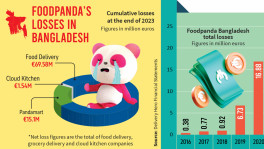An Economics Nobel for Three Pragmatic Poverty-Fighters
Finding what works in developing nations is more meaningful than high-flying theories

This year's economics Nobel prize went to three worthy economists — Abhijit Banerjee and Esther Duflo of the Massachusetts Institute of Technology, and Michael Kremer of Harvard University. The prize, which was awarded "for their experimental approach to alleviating global poverty," shows several important ways that the economics discipline is changing.
A popular conception of economists is that they're the high priests of the free market, downplaying the role of government and giving short shrift to the needs of society's poorest. A great many economists defy this stereotype, spending their careers studying how to uplift the poorest citizens of the developing world through government action. Banerjee, Duflo and Kremer fall into this category.
For example, all three have studied the benefits of education. Citizens of developed countries generally take universal public education for granted, along with the economic wealth that an educated populace creates. Developing countries, such as Kenya and India, don't have this luxury. In 2003, Kremer reviewed a series of randomized controlled trials in Kenya that found that spending more on education was effective, but that health treatments like deworming were also useful for keeping kids in school. Banerjee and Duflo, along with co-authors Shawn Cole and Leigh Linden, studied a program that hired tutors for underperforming students in India, as well as a computer-assisted learning program, and concluded that both were effective. Duflo has also found big wage gains from public education spending in India, confirming the central role of schools for economic growth.
Over the years, Banerjee, Duflo and Kremer looked at programs that nudge developing-world farmers to use more fertilizer, provide microcredit to slum residents, create quotas for women in local government, provide deworming treatments for the poor, eradicate malaria, and many other targeted government interventions. In some cases — for example, with microfinance — the programs haven't lived up to their early promise. But many of the initiatives were successful in generating lasting benefits.
To some, spending on program such as parasite control or tutoring might seem like tinkering around the margins. It's true that investment and industrialization is what ultimately transforms poor countries into rich ones. But as China and India have both demonstrated, such growth can often leave the poorest behind for a very long time. And an educated, healthy, well-fed populace affects the rate of return on investment (as Banerjee and Duflo have noted), and is thus crucial to kick-starting the process of rapid development. Meanwhile, in countries that haven't yet started their industrialization, alleviation of human suffering is the best that can be hoped for in the short term. So Banerjee, Duflo and Kremer's work is crucial on multiple fronts.
The second notable thing about this year's prize is the type of research it rewarded. Economists are often thought of as theorists, drawing supply and demand curves on their blackboards and ignoring the complex realities of the world outside. But recent decades have seen a broad shift toward empirical data analysis, as the question of cause and effect has become central to much of the profession.
Banerjee, Duflo and Kremer helped to pioneer one of the most important new empirical techniques — randomized controlled trials. Instead of studying the impact that government programs have on their own, they actually go into poor countries and create the programs. This type of research is becoming increasingly common; in the early 2000s, only a handful of economics RCTs were published every year, but that number is now in the hundreds, and RCTs are increasingly penetrating the top journals.
This trend has drawn critics who argue that RCTs tend to have weak statistical power, and that without a solid understanding of why the programs being studied have the effects they do, it will be very difficult to apply the lessons elsewhere.
But Banerjee, Duflo and Kremer are aware of these issues, and have devoted much of their research to dealing with them. They have worked on both improving the credibility of statistical evaluations and on scaling up RCTs to work in larger contexts. Banerjee and Kremer have also created theories of why governments fail to enact good policies and why poor countries fail to develop, which can help with the question of why some programs work and others don't.
In a 2017 speech, Duflo responded to the critics by redefining the whole idea of what economists should do. She likened development economists to plumbers, solving real-world problems in specific situations instead of seeking sweeping universal insights. Because the problems of poverty differ so greatly from place to place, she argues, economists should get their hands dirty and figure out specific solutions for each case.
This would be a breathtaking shift for an often hidebound and cloistered academic field. But Duflo, the youngest economist to ever win the Nobel at age 46, may show where the profession is headed — an economics that's humble, pragmatic, experimental and always tied to real people's problems, especially those most in need.


 Keep updated, follow The Business Standard's Google news channel
Keep updated, follow The Business Standard's Google news channel















